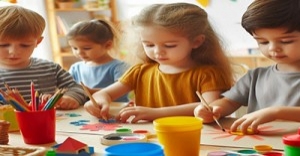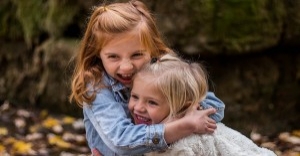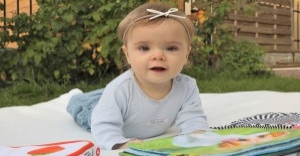

Creating a cozy, nature-inspired reading nook doesn’t have to be expensive. With a little creativity, you can build an inviting arch canopy using sturdy store-bought frames, playful DIY materials like pool noodles and hula hoops, repurposed camping tent arches, or even budget-friendly $13 dome tents from Big W and Kmart. This guide brings together all the options we’ve explored.
Improving team meetings in early childhood settings involves creating a collaborative, efficient, and supportive environment that focuses on enhancing the quality of education and care. The following article provides Strategies To Improve Team Meetings, Examples Of Encouraging Participation, Example of Problem Solving, How To Incorporate Feedback and more.
Both the Principles and Practices of EYLF place great significance on the nature of child-educator interactions. The following article provides information on What Are Positive Interactions, Developing Positive Interactions, Strategies and more.
Transitions are among the most significant factors that determine the well-being of young children. Their sense of ease, ability to learn and the nature of attachments are vastly impacted by how they experience transitions in the ECEC setting. The following article provides information on Theories and Transitions, Different Types Of Transitions, Benefits Of Planning Transitions With Families and Children and more.
As babies engage with their caregivers and interact with their environment, their physical, cognitive, communication and social abilities develop exponentially. At the same time, they need adults to engage with them with attuned interactions and secure relationships. The following article provides information on more on infant and toddler pedagogy so that educators can create rich learning experiences for children in their care.
 In Norway and most other Scandinavian countries, children nap in the outdoors. According, to research outdoor sleeping not only promotes better daytime sleeping, but it… Read More
In Norway and most other Scandinavian countries, children nap in the outdoors. According, to research outdoor sleeping not only promotes better daytime sleeping, but it… Read More
 The following article lists 30 art and craft descriptions and links to the EYLF. These can be used as a blurb, during observations, used for… Read More
The following article lists 30 art and craft descriptions and links to the EYLF. These can be used as a blurb, during observations, used for… Read More
 Feel Good Feb is dedicated to saying thanks, expressing gratitude, and promoting good deeds and random acts of kindness.
Read More
Feel Good Feb is dedicated to saying thanks, expressing gratitude, and promoting good deeds and random acts of kindness.
Read More
 From the earliest months of life, babies thrive when given opportunities to experience the outdoors. Nature is not just a backdrop for play—it is a… Read More
From the earliest months of life, babies thrive when given opportunities to experience the outdoors. Nature is not just a backdrop for play—it is a… Read More
 Across the early childhood education and care sector, educators are sounding the alarm: current staffing ratios are insufficient to deliver safe, meaningful, and developmentally appropriate… Read More
Across the early childhood education and care sector, educators are sounding the alarm: current staffing ratios are insufficient to deliver safe, meaningful, and developmentally appropriate… Read More
 Thanks to the new National Model Code and upcoming regulatory changes under the National Quality Framework (NQF), early childhood services across Australia must now implement… Read More
Thanks to the new National Model Code and upcoming regulatory changes under the National Quality Framework (NQF), early childhood services across Australia must now implement… Read More
 In the quiet hum of a weekday morning, something felt off. Preschool doors opened, but classrooms remained silent. No greetings. No redirection. No educators. And… Read More
In the quiet hum of a weekday morning, something felt off. Preschool doors opened, but classrooms remained silent. No greetings. No redirection. No educators. And… Read More
 A: In early childhood education and care (ECEC) settings across Australia, mobile phone use by educators is now subject to strict national reforms aimed at… Read More
A: In early childhood education and care (ECEC) settings across Australia, mobile phone use by educators is now subject to strict national reforms aimed at… Read More
 The end of the year is a busy and emotional time in early childhood services. Many services close for a short period over Christmas, and… Read More
The end of the year is a busy and emotional time in early childhood services. Many services close for a short period over Christmas, and… Read More
 In early childhood education and care, child safety is not just a number—it’s a practice. While educator-to-child ratios are essential, they are only one part… Read More
In early childhood education and care, child safety is not just a number—it’s a practice. While educator-to-child ratios are essential, they are only one part… Read More

The 10 Free Santa Beard Cutting printables are a simple yet powerful activity designed to help children practice...
See more...
Firstly you need to think about whether you want to become a Director. Just because...
See more...
In early childhood education, advocacy is not just about policy—it’s about protection. It’s about standing...
See more...© 2009-2026 Aussie Childcare Network Pty Ltd. All Rights Reserved.

